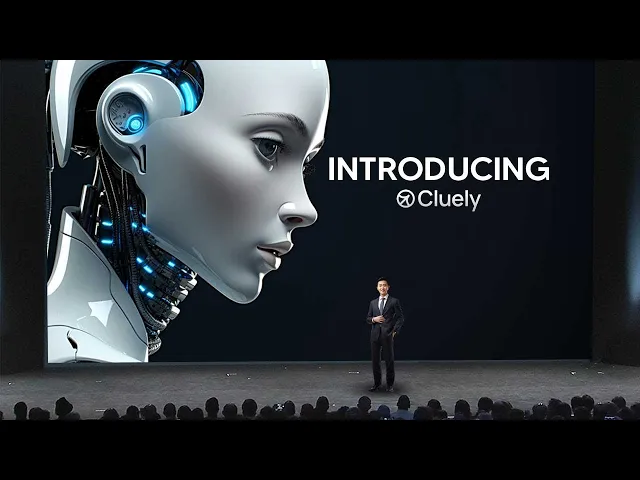Did this AI Tool Just Destroy Society (Cluely AI)

AI startup's provocation sparks fierce debate
In the world of AI startups, attention is currency—and one controversial demo video has generated plenty. A recent promotional clip for Cluely AI depicting a young man using AI assistance during a date has ignited fierce online backlash, with accusations that such technology undermines social trust. But beneath the outrage lies a more nuanced story about technological evolution and an intentional marketing strategy designed to provoke exactly this response.
Key insights from this controversy
- The provocative dating scenario shown in the video doesn't actually exist as a product—it's a marketing tactic designed to trigger emotional responses
- Cluely's actual product helps users "cheat" during technical interviews, sales calls, and other professional interactions
- The founder's "manifesto" positions all technological advancement as a form of "cheating" that society initially rejects but eventually normalizes
- The strategy worked brilliantly—widespread outrage drove massive attention to the brand, culminating in $5 million in funding
The calculated controversy machine
The most fascinating aspect of this situation isn't the technology itself, but how deliberately the controversy was engineered. The founder essentially crafted digital rage-bait, knowing the dating scenario would trigger visceral reactions about authenticity and trust. When viewers flooded his mentions with angry comments, he revealed this was precisely the engagement he sought.
This calculated approach to marketing represents a growing trend among tech startups: court controversy first, explain the nuance later. In an attention economy where user engagement dictates success, emotional triggers—even negative ones—drive visibility. The founder's comment that the video performed "even better than expected" shows he wasn't just prepared for backlash—he was counting on it.
AI and the shifting definition of "cheating"
The philosophical question at the heart of Cluely's manifesto deserves serious consideration: What constitutes "cheating" in a world where AI assistance becomes increasingly normalized? Historical parallels exist—calculators in mathematics, spell-check in writing, and search engines for research were all initially viewed with suspicion before becoming standard tools.
Consider how companies are already adapting to this reality. Goldman Sachs has adjusted its coding assessments to allow candidates to use AI assistants, acknowledging that prohibiting tools that will be part of the daily workflow makes
Recent Videos
How To Earn MONEY With Images (No Bullsh*t)
Smart earnings from your image collection In today's digital economy, passive income streams have become increasingly accessible to creators with various skill sets. A recent YouTube video cuts through the hype to explore legitimate ways photographers, designers, and even casual smartphone users can monetize their image collections. The strategies outlined don't rely on unrealistic promises or complicated schemes—instead, they focus on established marketplaces with proven revenue potential for image creators. Key Points Stock photography platforms like Shutterstock, Adobe Stock, and Getty Images remain viable income sources when you understand their specific requirements and optimize your submissions accordingly. Specialized marketplaces focusing...
Oct 3, 2025New SHAPE SHIFTING AI Robot Is Freaking People Out
Liquid robots will change everything In the quiet labs of Carnegie Mellon University, scientists have created something that feels plucked from science fiction—a magnetic slime robot that can transform between liquid and solid states, slipping through tight spaces before reassembling on the other side. This technology, showcased in a recent YouTube video, represents a significant leap beyond traditional robotics into a realm where machines mimic not just animal movements, but their fundamental physical properties. While the internet might be buzzing with dystopian concerns about "shape-shifting terminators," the reality offers far more promising applications that could revolutionize medicine, rescue operations, and...
Oct 3, 2025How To Do Homeless AI Tiktok Trend (Tiktok Homeless AI Tutorial)
AI homeless trend raises ethical concerns In an era where social media trends evolve faster than we can comprehend them, TikTok's "homeless AI" trend has sparked both creative engagement and serious ethical questions. The trend, which involves using AI to transform ordinary photos into images depicting homelessness, has rapidly gained traction across the platform, with creators eagerly jumping on board to showcase their digital transformations. While the technical process is relatively straightforward, the implications of digitally "becoming homeless" for entertainment deserve careful consideration. The video tutorial provides a step-by-step guide on creating these AI-generated images, explaining how users can transform...
